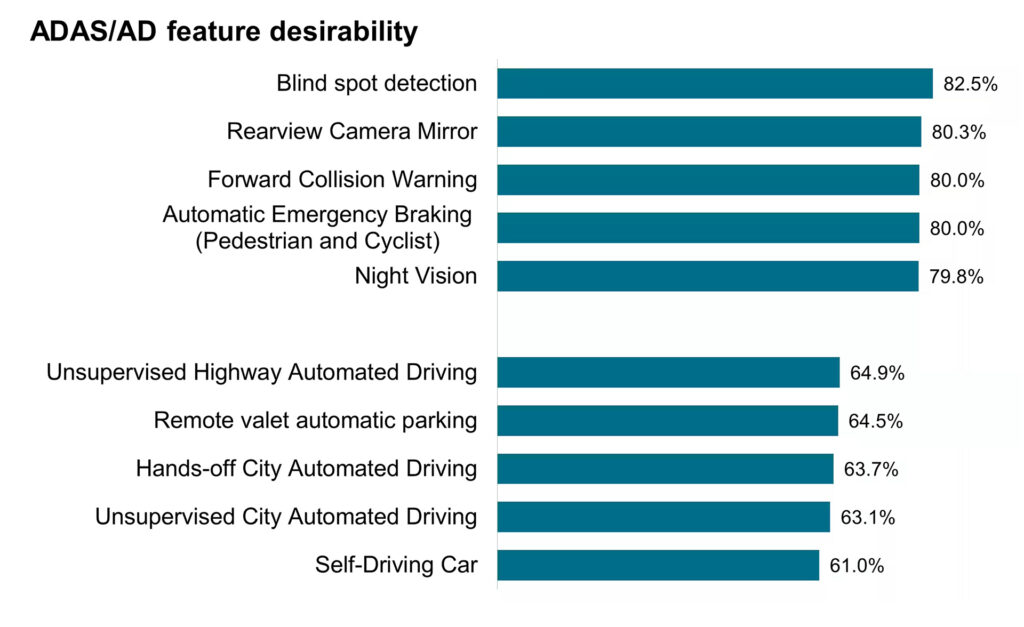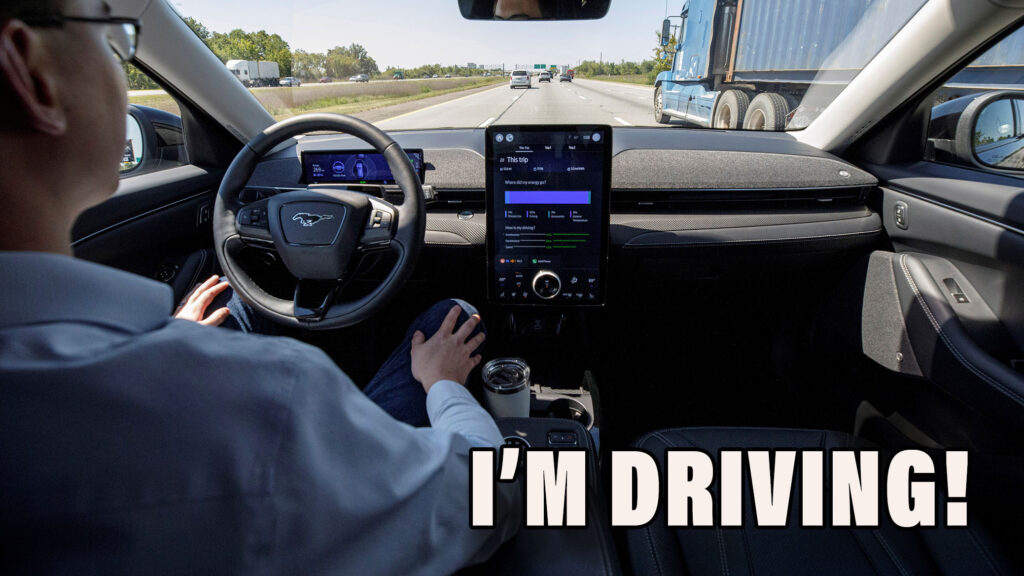Automakers love to tell us about their new cars’ incredibly sophisticated autonomous driving features, but a new study suggests self-driving tech is way down consumers’ lists of priorities when buying a new car.
Almost every major brand now offers their cars with at least a Level 2 autonomous driving system that enables the car to do some of the driving. Level 2+ systems, such as General Motor’s Super Cruise and Ford’s Blue Cruise, allow hands-off automated highway driving, but still require the driver to keep their eyes on the road, and the Level 3 system on top-spec Mercedes cars allows you to kick back and watch a movie in certain conditions.
But modern consumers are far more interested in advanced driver assistance systems (ADAS) tech features like blind-spot detection, a backup camera, forward collision warning and automatic emergency braking with pedestrian and cyclist detection. In a 2023 S&P Global Mobility consumer survey those four features were rated as most desirable, with each being highlighted by at least 80 percent of all drivers quizzed.
Related: Mercedes Approved To Sell Partially Autonomous Cars In California Beating Tesla

In contrast, only 61 percent of respondents expressed a desire for a fully self-driving car, and none of the other autonomous options offered to consumers ranked higher than 64.9 percent in the desirability stakes. S&P Global Mobility’s analysts said that spoke to a lack of trust in autonomous systems on the part of buyers, noting that just 47% of consumers said they would ride in a car with self-driving abilities and would consider purchasing one.
But the results did vary according to geographical location. Consumers in China, for example, were far more receptive to the idea of self-driving cars than those in the U.S., Britain and Germany.
The other key takeway from the report is that while buyers are very keen to have safety features on their new cars, they don’t like the idea of paying extra for them. More than 50 percent of buyers expect a car’s sophisticated safety gadgets to come standard.




